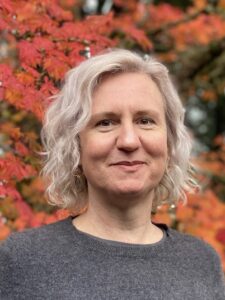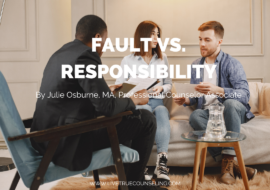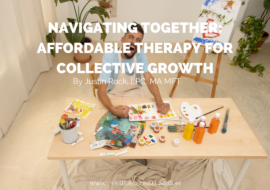Midori Ferris Wayne, MA

I trust that every one of us is inherently wired to connect. I also believe that we all deserve to live a full and meaningful life. At the same time, we can experience a tension in our connections with others when we sense our autonomy is at risk. This tension means that suffering is real, but autonomy and empathy are interdependent. As a relational therapist, I can partner with you as you navigate these struggles. My trauma-informed, non-pathologizing approach means I believe you already possess inner resources for healing, but I also observe most of us getting stuck in self-protective patterns which can work against our values and goals. We all benefit from support for creating connection with ourselves and others. If you are feeling anxious or despairing about your life situation, or your relationships feel unfulfilling or conflict-ridden, I can help you access new strategies for living a meaningful life.
My goal is for you to find therapy empowering, and I value an anti-oppressive stance of “power with” rather than “power over.” In my practice, this work involves acknowledging inherited ways of relating that don’t privilege everyone equally, and you can expect active engagement with these issues from me. I work from a neuroqueer framework that assumes diversity of minds as well as bodies, so I celebrate multiplicity in many different forms: neurodivergence, sex positivity, body liberation and health at every size, nontraditional relationship structures, gender expansivity, and intersectional identities. I support individuals and partners to increase intimacy and enrich personal meaning, including specialized training in sex therapy and trauma-informed, strengths-based frameworks.
My existential-humanistic approach integrates interpersonal neurobiology (brain-science-based attachment), narrative theory (stories we tell ourselves about our lives and each other), and Internal Family Systems (IFS), which assumes that everyone has an inner system of different parts that relate to one another like a family, with a core Self designed to lead with compassion, curiosity, and creativity. I find IFS particularly hopeful because it assumes that we all possess untapped inner resources which open up new possibilities for relating to one another and understanding ourselves. Instead of simply suppressing or challenging intense emotions or behaviors, this model helps us make sense of conflicting impulses and access new strategies for navigating painful situations.
I have a Masters in Marriage, Couple, & Family Therapy with a specialization in Sex Therapy from Lewis & Clark Graduate School of Education and Counseling. I have also conducted research into invisible power dynamics in relational therapy and have facilitated parenting groups for neurodivergent families for over a decade. Prior to becoming a therapist, I taught social-emotional development to middle schoolers and had a previous career in design and museum curatorial work.
My own identity is rooted in the neuroqueer framework, and I’m a passionate advocate for inclusivity. I’m still a design junkie obsessed with weird plants, and I fiercely prioritize time with the people I love. My ideal day involves a stroll in the Scott Arboretum followed by relaxing at home with an insanely hard puzzle, being beaten (barely!) by one of my four children at a board game, and then devouring my partner’s Hatch chile enchiladas.
Anxiety
Depression
Relational conflict
Identity (gender, sexuality, racial/cultural intersectionality)
Neurodivergence (sensitivity, intensity, attention/focus/motivation challenges, autistic traits)
Sex therapy
Polyamory and consensual nonmonogamy
LGBTQIA issues
Spiritual/religious trauma
Life transitions
Parenting/caregiving



